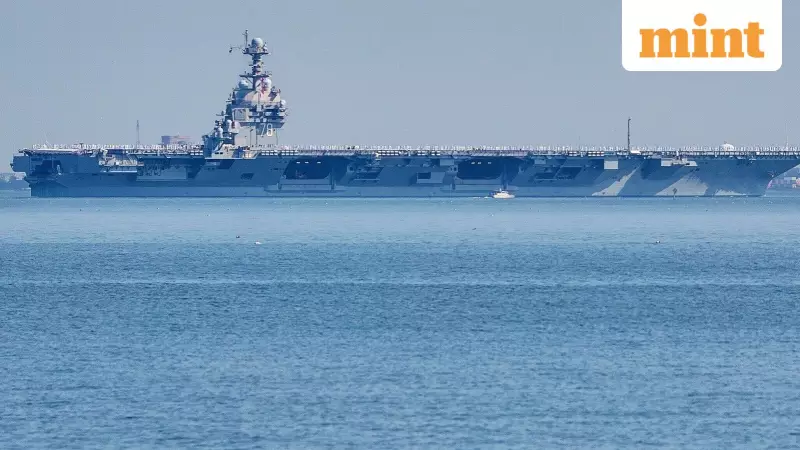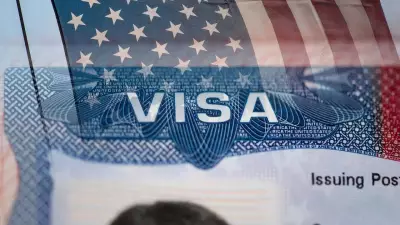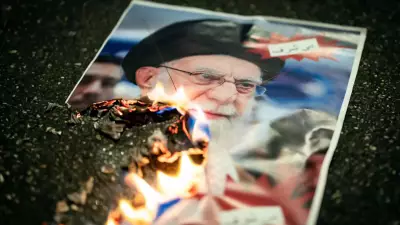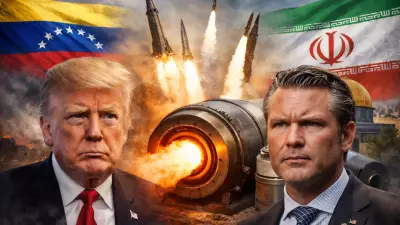
In a significant military movement, the United States has deployed its most sophisticated aircraft carrier, the USS Gerald R. Ford, to the Caribbean Sea. The vessel arrived on Sunday, creating a powerful demonstration of American military strength in the region.
Massive Military Build-Up in Caribbean Waters
The US military confirmed in an official statement that the Ford's deployment represents the largest concentration of American firepower in the Caribbean in a generation. The operation, named "Operation Southern Spear" by War Secretary Pete Hegseth, now involves approximately 12,000 troops spread across nearly a dozen Navy ships.
According to Navy reports, the Ford's carrier strike group passed through the Anegada Passage near the British Virgin Islands on Sunday morning. The battle group includes multiple squadrons of fighter jets and several guided-missile destroyers, creating an impressive naval presence.
Rear Admiral Paul Lanzilotta, who commands the strike group, emphasized that this deployment would strengthen American warships' ability to "protect our nation's security and prosperity against narco-terrorism in the Western Hemisphere."
Counter-Narcotics Mission or Political Pressure?
While the Trump administration maintains this is purely a counter-narcotics operation, many observers interpret it as an escalating pressure tactic against Venezuelan President Nicolás Maduro. This deployment follows a period of intensified military activity that began in early September.
Recent US operations have resulted in at least 80 fatalities across 20 attacks on small vessels suspected of drug trafficking in the Caribbean and eastern Pacific Ocean. However, the administration has not provided evidence supporting its claim that those killed were "narcoterrorists."
President Trump has indicated that military involvement will expand beyond maritime strikes, stating the US would "stop the drugs coming in by land." This suggests a potential broadening of the operation's scope.
Regional Implications and Responses
The use of aircraft carriers to apply pressure and deter aggression represents a long-standing US military strategy. The capability of carrier-based warplanes to strike targets deep within another country adds significant weight to this deployment, particularly in the context of Venezuela.
Secretary of State Marco Rubio has repeatedly stated that the United States does not recognize Maduro as Venezuela's legitimate leader, citing widespread allegations of election fraud during last year's presidential vote. Rubio has previously characterized Venezuela's government as a "transshipment organisation" that openly cooperates with drug traffickers.
In response to the US deployment, Maduro—who faces narcoterrorism charges in the United States—accused the US government of fabricating a war against him. Venezuela's government recently announced a "massive" mobilization of troops and civilians to prepare for potential US attacks, indicating rising tensions in the region.
The arrival of the USS Gerald R. Ford in the Caribbean marks a pivotal moment in US military strategy in South America, with potential consequences for regional stability and international relations.





